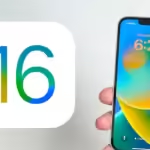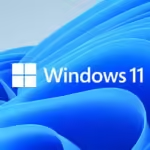According to Microsoft, Bing will now begin to prioritize AI search results. The company announced a significant update to Bing, changing how the search engine works. The new Bing update puts AI-generated answers first when you search for something.
When you type in a query, the main part of the results page will now show an AI-generated answer. This answer is created by reviewing millions of sources and using advanced AI technology to give a detailed and relevant response. Traditional search results will still be there but will appear in a smaller panel on the right side of the page.
Windows Central explains this update as combining Bing’s traditional search results with the power of large and small language models (LLMs and SLMs). These models help understand the search query, find the right information, and create an AI-generated answer that aims to meet the user’s needs more effectively.
Right now, only a small number of Bing users can experience this new feature of AI search results, but it is expected to become available to more users soon. There doesn’t seem to be an option to turn off the AI-generated results if you prefer not to use them.
This change might not be welcome news for everyone, especially those who aren’t interested in AI-powered search results. The new layout means that two-thirds of your results page is now taken up by the AI-generated answer, leaving less space for the traditional search results. This could be frustrating for users who prefer the old format.

On the other hand, many people, like students and researchers, might find this update useful. They can get quick answers with cited sources without having to dig through multiple links. However, it’s important to remember that AI isn’t always reliable. It can make mistakes or pick up incorrect information.
Also, there is a growing worry that websites offering free content might suffer if AI bots take their content and show it directly in search results or chat windows. Microsoft says the new AI search feature is designed with this concern in mind. And they claim it will still drive the same number of clicks to websites as traditional search, but it’s yet to be proven.
Users who prefer the old way of searching might find the change inconvenient. Hopefully, Microsoft will consider offering more control over whether users want to see AI-generated results or stick with traditional search results. This way, everyone can choose the search experience that works best for them.
Overall, this update in Bing represents a big shift in how the search engine operates, prioritizing AI-generated content in response to user queries. As it rolls out to more users, it will be interesting to see how it is received and whether Microsoft will make any adjustments based on user feedback.








